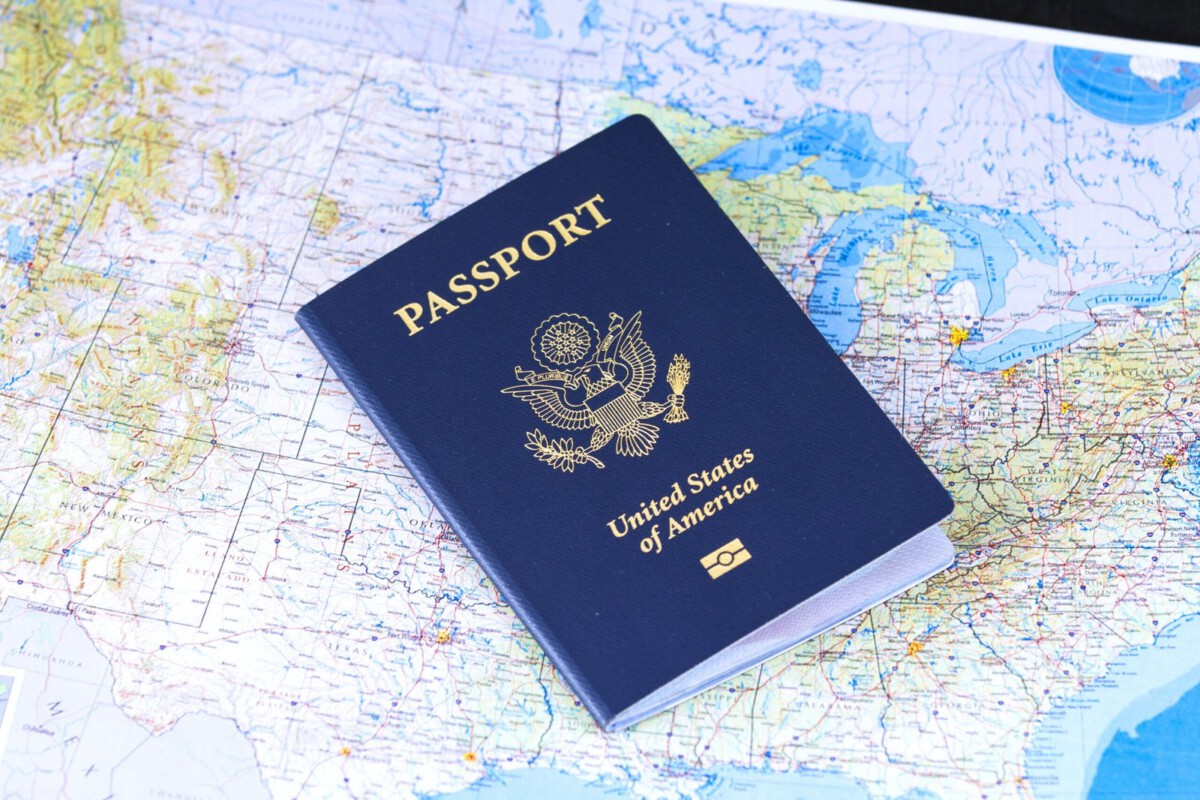1. A Passport is Only Needed for International Travel

It might shock some travelers to learn that a U.S. passport is not just for globe-trotters heading overseas. While most people associate passports with international adventures, the reality is more complicated. A passport is required to re-enter the United States from any foreign country, no matter how short the trip. Even though U.S. citizens can travel to certain territories like Puerto Rico or the U.S. Virgin Islands without a passport, having one can make unexpected detours or emergencies much less stressful. The U.S. State Department recommends carrying your passport even within domestic flights if you think there’s any chance of a sudden emergency overseas. This advice especially rings true when considering unforeseen circumstances like missed connections or family emergencies abroad. Some travelers who’ve experienced sudden family situations overseas will tell you, “Having my passport on hand was a lifesaver.” Don’t wait until you’re in a bind to realize its importance.
2. Passports Expire After 10 Years, No Exceptions

A lot of Americans are surprised to find out that not all passports carry a 10-year lifespan. While adult passports do last a decade from the date of issue, children under 16 receive passports that expire in just five years. This difference has caught many parents off guard at the airport, leading to stressful and costly last-minute changes. Additionally, many countries require that your passport be valid for at least six months beyond your date of entry. A passport expiring in four months, for example, could mean denied boarding or entry—even if your trip is only a week long. The U.S. State Department and airlines frequently remind travelers to check their passport’s expiration date long before departure. According to recent travel surveys in 2024, nearly 18% of travelers were unaware of these six-month rules until faced with them at the gate. It’s a small detail, but it can ruin a big trip.
3. You Can Renew Your Passport Anytime

Many Americans believe renewing a passport can be done at any time, but strict guidelines govern the process. The U.S. State Department strongly suggests starting the renewal process at least six months before your passport’s expiration date. That’s not just a recommendation—some countries will not allow entry if your passport is close to expiring. If your passport is damaged, lost, or if your name has changed, you’ll need to apply for a new one instead of a renewal. In 2024, government reports showed that over 30% of passport applications faced delays due to incomplete information or incorrect applications. This can mean weeks of waiting, missed flights, and a lot of unnecessary stress. Planning ahead is not just smart, it’s essential.
4. You Can Travel Abroad with Just a Driver’s License

It’s a common mistake: assuming a driver’s license will get you across international borders. While it’s true that a driver’s license is crucial for domestic flights—especially with the rollout of REAL ID requirements—it’s useless for international travel. A passport remains the only universally accepted identification for entering another country and returning to the U.S. The U.S. State Department makes it clear that even travel to neighboring countries like Canada or Mexico by air requires a passport book. In 2025, more than 10,000 travelers were reportedly turned away at foreign airports for lacking proper documentation. If you’re leaving the country, leave your assumptions—and only your assumptions—behind.
5. The Passport Card Can Replace the Passport Book for Air Travel

Many Americans like the compact, wallet-friendly passport card, but here’s where confusion sets in. The passport card is only valid for land and sea travel between the U.S. and Canada, Mexico, the Caribbean, and Bermuda. It cannot be used for international air travel under any circumstances. Imagine showing up at the airport with only your passport card, only to be denied boarding—it happens every year, according to the U.S. State Department. Before booking any flight outside the U.S., double check your documents. The passport book is non-negotiable for flying internationally, no matter how short the trip. The difference could mean the difference between a dream vacation and a nightmare at check-in.
6. You Can Get a Passport in One Day

It’s a modern myth that you can walk into a passport office and walk out with a passport the same day. While expedited services are available for emergencies, they still usually require at least 24 hours and, more commonly, several days. In 2025, the average expedited processing time ranged from 24 hours (in true emergencies with proof of imminent international travel) up to 14 days, depending on appointment availability and demand. Routine renewals and new applications currently average 10-12 weeks. Even with “rush” services, last-minute travelers have faced missed flights due to processing backlogs, especially during peak seasons. The State Department repeatedly advises travelers to apply as early as possible to avoid disappointment.
7. You Don’t Need a Passport for a Cruise

Cruise advertisements often highlight “passport-free” sailing, especially on closed-loop cruises starting and ending at the same U.S. port. That’s where the confusion starts. While you might be able to board with just a birth certificate and government-issued photo ID, the Cruise Lines International Association reports that over 70% of passengers now carry passports anyway. Why? If you miss the boat at a foreign port, need a medical evacuation, or face an emergency that requires you to fly home from a foreign country, a passport is essential. Stories abound of travelers stranded or delayed for days because they didn’t bring one. The extra peace of mind is worth carrying the booklet.
8. You Can Travel with an Expired Passport

Some people mistakenly think an expired passport is “close enough” for travel. This couldn’t be further from the truth. In 2025, airlines and border authorities in virtually all countries—including the U.S.—enforce strict rules: an expired passport is simply not valid. Travelers who try to board with one are routinely denied and must reschedule at their own expense. The State Department urges everyone to check their passport’s expiration date at least a year before planned travel. The heartbreak of missing a long-awaited trip over an expired document is all too common, but completely avoidable.
9. You Can Get a Passport Without a Birth Certificate

When applying for a passport, the birth certificate is the golden ticket for most U.S.-born citizens. If you don’t have one, you’ll need alternative proof like a naturalization certificate or a consular report of birth abroad, both of which take more time to verify. The U.S. State Department notes that applications without a birth certificate often face delays or even rejections, with extra scrutiny required to prevent fraud. In 2024, thousands of applicants saw their travel plans postponed because they failed to produce acceptable proof of citizenship. For the fastest, smoothest application, your official birth certificate is the best bet.
10. Your Passport is Always Accepted as ID

A U.S. passport is a powerful identification tool, but it’s not universally accepted in every situation. Some states and local businesses require a driver’s license or state ID for things like buying alcohol, entering clubs, or purchasing certain items. There are even cases where a passport is deemed “too valuable” or cumbersome for routine ID checks. Many travelers have found themselves frustrated when their passport wasn’t enough to rent a car or check into a hotel. As a result, experts recommend carrying an additional form of identification, such as a driver’s license, especially for domestic situations.
11. Having a Passport Means You Never Need a Visa

It’s a persistent myth that a valid U.S. passport is your all-access pass to the world. The reality is that visa requirements vary drastically by country and purpose of visit. For example, countries like China, India, and Brazil require U.S. citizens to obtain visas in advance, regardless of how new or valid their passport is. Some countries will grant visa-free entry for short stays, but business, student, or long-term visits almost always need extra paperwork. According to National Geographic Travel, thousands of Americans are turned away at foreign borders every year because they assumed their passport was enough. Before booking, always check the latest entry requirements for your destination.








